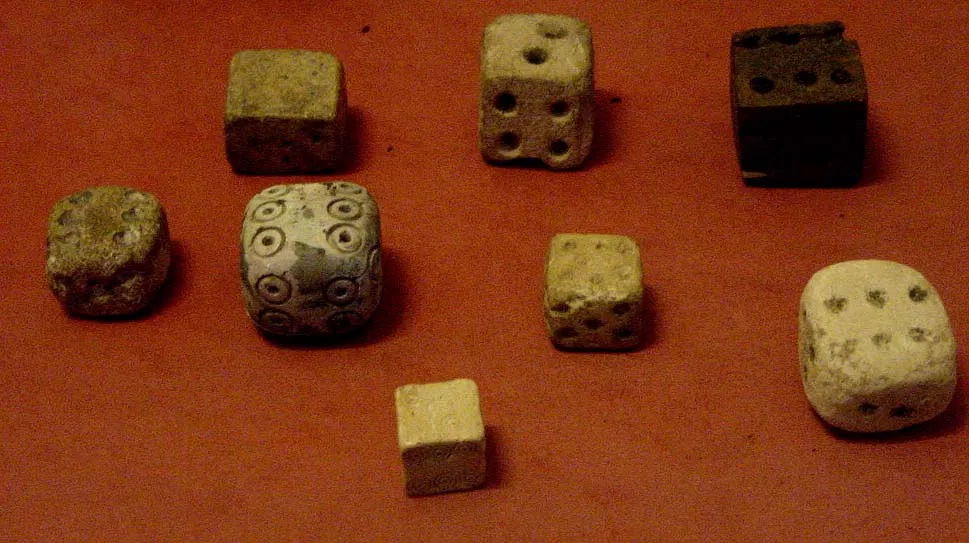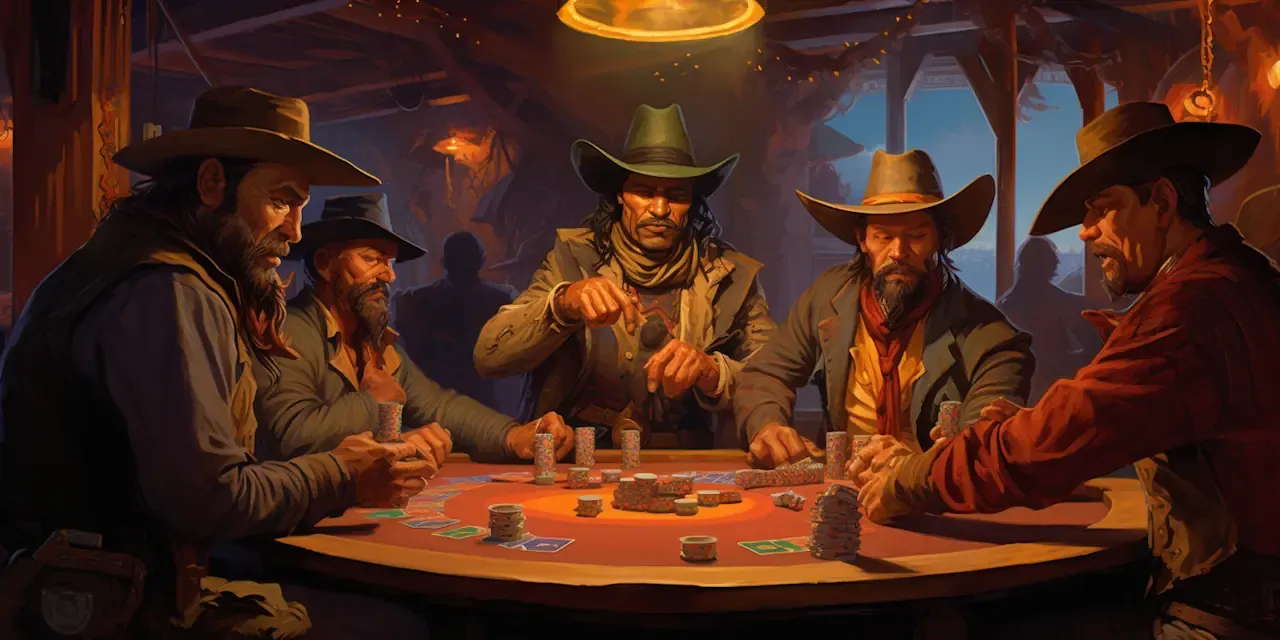
Gambling has been a part of human civilization since ancient times. From throwing dice in the streets of ancient Rome to playing card games in medieval castles, the concept of taking risks and winning rewards has always intrigued people. And while the world of gambling has evolved over the years, with the introduction of online casinos and digital games, some games have stood the test of time and remained popular even today.
In this article, we will take a journey through history and explore the origins and evolution of the world’s oldest casino games. From the humble beginnings of traditional games to the modern versions played in online casinos, we will uncover the stories behind these classic games and how they have shaped the gambling industry.
1. The History of Dice Games

Dice games are believed to be one of the oldest forms of gambling, dating back to as early as 3000 BC. It is said that ancient Egyptians used to play a game called “Senet” which involved throwing sticks or bones to determine the movement of pieces on a board. As civilizations advanced, so did the methods of making dice. While Egyptians used natural materials like bones and sticks, Romans introduced the use of ivory, marble, and other semi-precious stones.
Origins of Dice in Gambling
The concept of using dice for gambling was first introduced by the Greeks around 500 BC. They developed a game called “Kubeia” which involved rolling three dice and betting on the outcome. This became popular among soldiers who used to play it during their free time. Over time, the game spread to other parts of Europe and eventually made its way to China, where it evolved into the game of Sic Bo.
Evolution of Dice Games
As gambling gained popularity in ancient Rome, dice games became more sophisticated and were often linked to religious beliefs. One such game was “Tesserae” which involved rolling three dice and predicting the outcome based on certain symbols. Another popular game called “Tali” used four-sided dice with different symbols on each side.
With the rise of Christianity, gambling was frowned upon and eventually banned in many countries during the Middle Ages. However, dice games continued to exist in some form or the other, usually played in secret by the nobles in their castles. It was not until the 18th century when gambling was legalized again that dice games made a comeback and became popular among all classes of society.
2. The Birth of Cards: A Look into the Origins
The first mention of playing cards dates back to the 9th century in China, where they were used for entertainment purposes. These early cards were hand-painted and had images of animals, flowers, and other symbols. They were also used for divination and fortune-telling. As the game spread to other parts of Asia, it evolved into different variations, such as the Japanese game of Hanafuda and the Korean game of Hwa-tu.
Introduction of Playing Cards in Europe
The concept of playing cards was introduced to Europe by the Arabs in the 13th century. The earliest known European card decks were found in Spain and Italy, with the suits being cups, coins, swords, and batons. It is believed that these cards were used for gambling and were played in a similar way to modern-day tarot cards.
Evolution of Modern-Day Playing Cards
Over the years, playing cards have undergone many changes, with different countries adopting their own designs and rules for games. In the 15th century, the French introduced the modern-day suits of hearts, diamonds, spades, and clubs, which are still used in most card games today. The printing press made mass production of cards possible, making them more accessible to the masses.
With the rise of gambling in the 18th and 19th centuries, playing cards became a popular pastime among people of all classes. New games were invented, such as poker and blackjack, which became staples in casinos around the world. As technology advanced, so did the ways of playing cards, with the introduction of online versions and digital games.
3. The Fascinating History of Roulette
Roulette is one of the most iconic casino games, with its roots dating back to 18th century France. The word “roulette” comes from the French word meaning “small wheel,” and the game was initially played by French nobles in their palaces. It is believed that Blaise Pascal, a French mathematician, invented the first version of the roulette wheel while trying to create a perpetual motion machine.
The Evolution of Roulette in Europe
The first documented mention of roulette dates back to 1796 when it was mentioned in a French novel. The game gained popularity in France, and over time, different variations of the game emerged, such as the German version called “Zero Spiel” and the Italian version called “Hoca.” In the early 19th century, roulette made its way across the Atlantic and became popular in the United States.
The American Version and Its Impact on the Game
The American version of roulette was introduced in the 19th century by Louis and François Blanc, who added an extra pocket with a double zero to the wheel. This gave the house a higher edge, making it more profitable for casinos. This version of the game became known as “American roulette,” while the original French version was called “European roulette.”
The double zero pocket was eventually removed from European roulette, making it more appealing to players due to its lower house edge. Today, both versions of the game are still played in casinos around the world, with the European version being more popular due to its better odds.
4. From Saloons to Online Casinos: The History of Poker

Poker, one of the most widely played card games in the world, has a rich and fascinating history. Its origins can be traced back to the 16th century in Persia, where a game called “As Nas” was played with a deck of 25 cards. As the game spread through different countries, it evolved into various forms, such as the French game of “Poque” and the German game of “Pochen.”
The Evolution of Poker in America
It is believed that French settlers brought the game of poque to Louisiana, which eventually evolved into the modern-day version of poker. The game gained popularity in the saloons of the Wild West, where cowboys would often play it with their winnings from cattle drives. It was not until the 1970s when poker became a professional sport and was introduced to the world through televised tournaments.
The Digital Age of Poker
With the rise of online casinos in the late 90s, poker saw a surge in popularity as people could now play the game from the comfort of their homes. This led to the growth of the World Series of Poker and other major tournaments, with the number of players and prize money increasing every year. Today, poker is not just limited to casinos but is also played professionally online, with millions of players participating in tournaments worldwide.
5. The Game of Blackjack: A Tale of Origins and Variations
Blackjack, also known as 21, is one of the oldest casino games that is still popular today. Its origins can be traced back to 17th century France, where it was known as “Vingt-et-Un,” meaning twenty-one in French. The game was initially played in French casinos and was later introduced to the United States, where it gained immense popularity.
The Introduction of Blackjack in America
It is believed that the game of blackjack was first played in America in the early 19th century, where it was initially known as “Vingt-et-Un.” The rules were slightly different from the French version, with players being able to bet after each round instead of at the beginning of the game. It was also around this time that the name “blackjack” was coined, as the game offered a bonus payout for a hand consisting of an ace of spades and a black jack (either a jack of clubs or spades).
Different Variations of Blackjack
As the game evolved and gained popularity, different variations of blackjack emerged. The most common is the American version, which is played with a standard deck of cards. However, there are also other variations, such as Spanish 21, Pontoon, and Blackjack Switch, which have different rules and offer a unique experience for players.
With the rise of online casinos, players can now choose from a wide variety of blackjack games, each with its own set of rules and payouts. This has made the game even more popular, with people from all over the world being able to play it anytime, anywhere.
6. The Enduring Appeal of Slot Machines

No casino is complete without the flashing lights and sounds of slot machines. These iconic machines have been a part of gambling history since the late 19th century when they were first introduced in San Francisco by Charles Fey. The original machine, called the “Liberty Bell,” had three reels and five symbols – diamonds, hearts, spades, horseshoes, and bells.
The Rise of Slot Machines in America
The Liberty Bell became an instant hit in America, and soon, other companies started producing their own versions of slot machines. However, due to strict laws against gambling, these machines were often disguised as vending machines to avoid legal repercussions. It was not until the early 20th century when gambling was legalized again, that slot machines became a common sight in casinos.
The Evolution of Slot Machines
Over the years, slot machines have evolved from mechanical to electronic machines, with the invention of the first video slot machine in the 70s. This opened up new possibilities for game developers, and today, players can choose from a wide variety of themes and features in slot machines. With the introduction of online casinos, slot machines have become even more advanced, offering players the chance to win huge jackpots and play games with exciting bonus rounds.
Conclusion
From the ancient civilizations of Egypt and China to the modern-day digital world, these oldest casino games have survived through the ages and continue to entertain people from all walks of life. As we have seen, each game has a rich history and has evolved in its own unique way. And while technology has changed the way we play these games, the excitement and thrill of taking risks and winning rewards remain the same.
As the gambling industry continues to grow, it is fascinating to see how these classic games will evolve in the future. Will we see new variations and advancements in technology? Or will traditional games continue to stand the test of time? Only time will tell, but one thing is for sure – the world’s oldest casino games will always hold a special place in the hearts of gamblers around the world.


